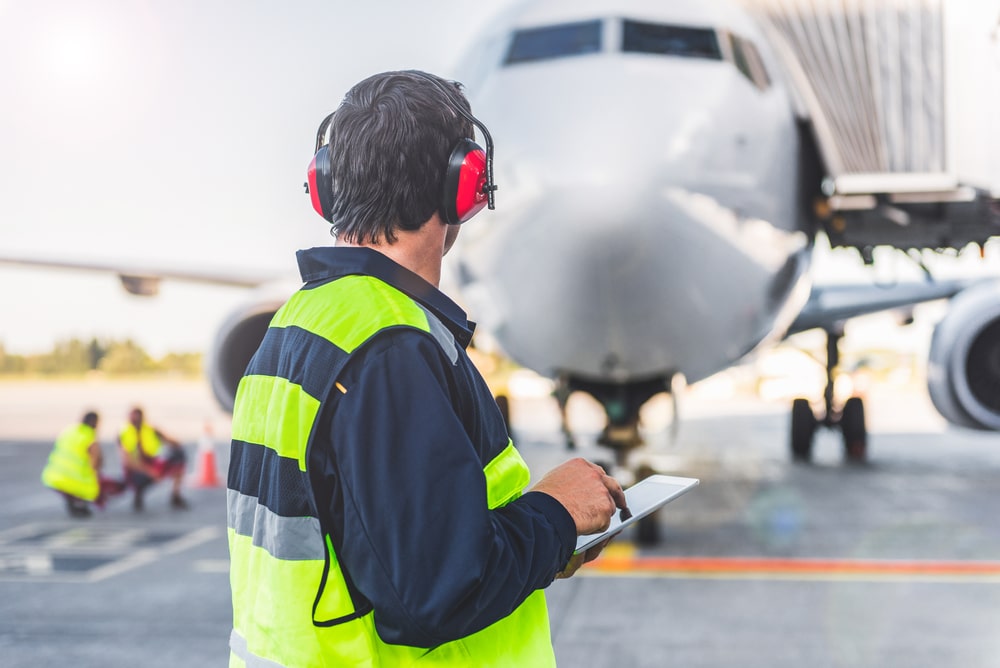
Russell attended a IATA presentation at Lloyd's of London on the 28th June 2022.
The International Air Transport Association (IATA) invited the aviation insurance market and anyone interested in aviation to a presentation by Mark Searle, IATA's Global Director of Safety at Lloyd's of London on the 28th June 2022.
Russell was among the attendees at the event who heard that the new Risk Based IOSA (IATA Operational Safety Audit) will be launched in 2023 and is tailored to individual airlines. Focusing on key safety risks whilst maintaining a baseline of safety will increase the effectiveness of the IOSA audit in the best interests of the airline industry as a whole - including its insurers.
What do we mean by the term risk-based in the context of IOSA? The current IOSA audit assesses an airline’s compliance with the IOSA Standards and Recommended Practices (ISARPs). The term risk-based describes an audit concept under which the audit scope is tailored to areas pertinent to the individual airline’s needs.
Attendees heard that IATA’s mission is to represent, lead, and serve the airline industry. It improves understanding of the air transport industry among decision makers and increases awareness of the benefits that aviation brings to national and global economies. Advocating for the interests of airlines across the globe, the organisation challenges unreasonable rules and charges, holds regulators and governments to account, and strives for sensible regulation.
According to the event speaker Searle, IATA represents 96% of airlines and 80% of global traffic. Just five days with IATA’s auditors will result in “enhanced safety performance.” Non-IOSA operators have experienced a significant increase in accidents whilst over the same period, IOSA operators have experienced a decline in accidents.
The CEOs of 21 airlines around the world are part of the “IATA family” which is currently led by Willie Walsh who became the eighth person to lead the organisation when he took on the role of Director General in April 2021. IOSA programme areas of activity include standards management, policies and processes, audit procedures and program management and infrastructure. It conducts auditor training and development, quality oversight and regulatory liaison.
Searle argues that while the aviation industry is always improving safety controls it cannot afford to become complacent as long termlong-term growth trends in global passenger volumes and flights will inevitably result in more incidents and accidents. That is why the sector must move away from a “tick box exercise” toexercise” to the new “risk basedrisk-based framework.”
It is expected that the new risk-based IOSA will move away from a standard audit checklist of all operators to a tailored audit scope focusing on pertinent safety risks. Digital reporting and a risk engine will contribute to consecutive reduction in accident rates. Risk-based audit scoping moves IOSA away from the one size fits all approach. 2022 trial audits will be performed to test audit methods and processes, in a transition plan that will support more than 200 IOSA audits per year from 2025. Searle said the airline sector must: “get out of the group think environment. Move away from standard audit checklists to tailored audits.”
The new regime will help to develop an understanding of where people are: “on the maturity scale and cycle.” Five volunteer airlines have already agreed to take part in the first phase of the risk- based program.
The primary benefit of risk-based IOSA will be the safety insights captured to deliver safety improvements and reduction of global accident/incident rates, sustainability and improving operational safety and efficiency. Other benefits are the reduction of redundant audits and their associated costs, improved marketability and potentially a reduction in insurance premiums.
Collaboration with Airline Associations will continue as IATA establishes new footholds in territories around the world. The future also holds great promise for risk- based auditing for helicopters, urban air mobility (flying cars!) and drones.

Related Articles
Aviation
Aviation
Aviation